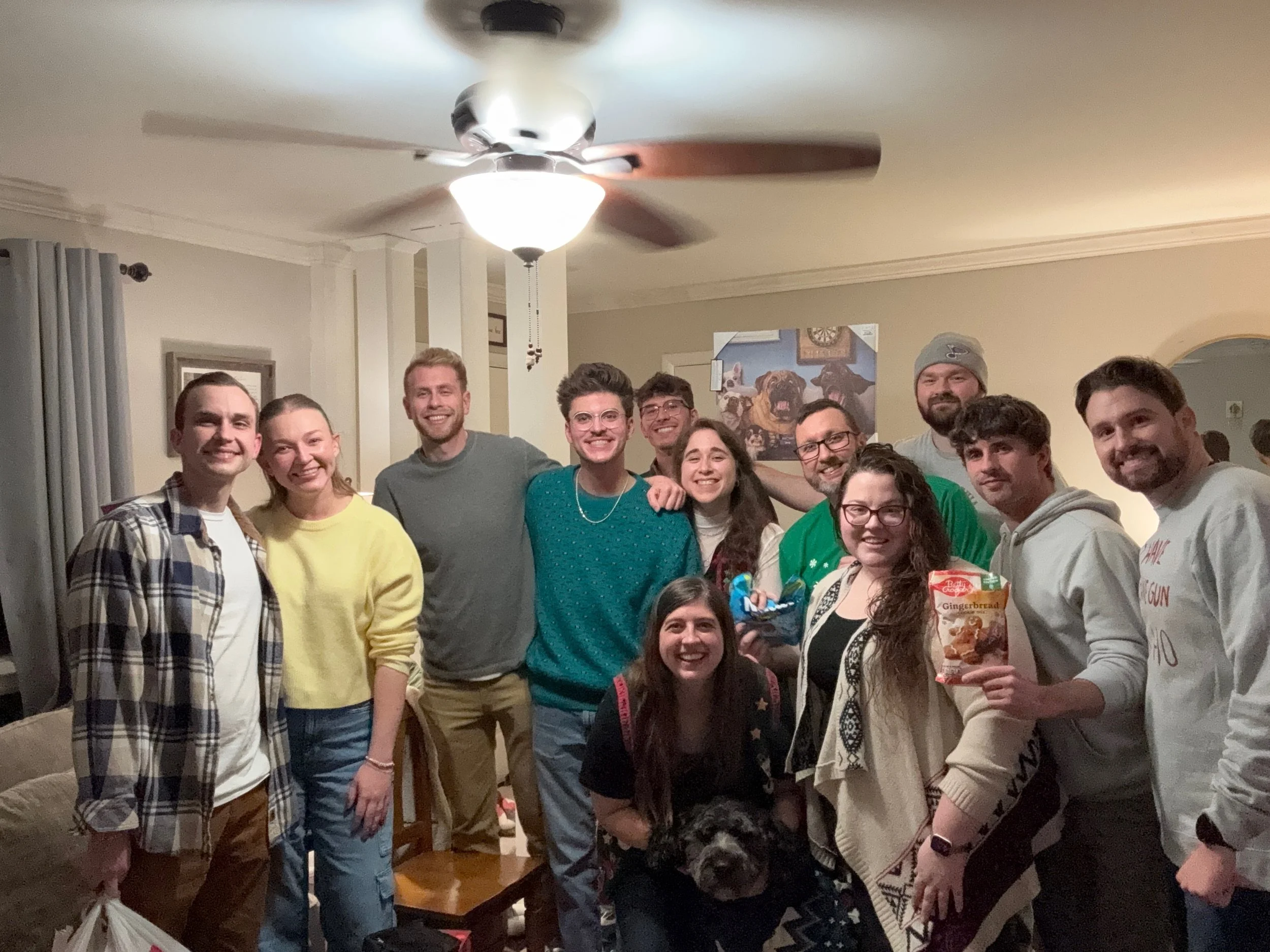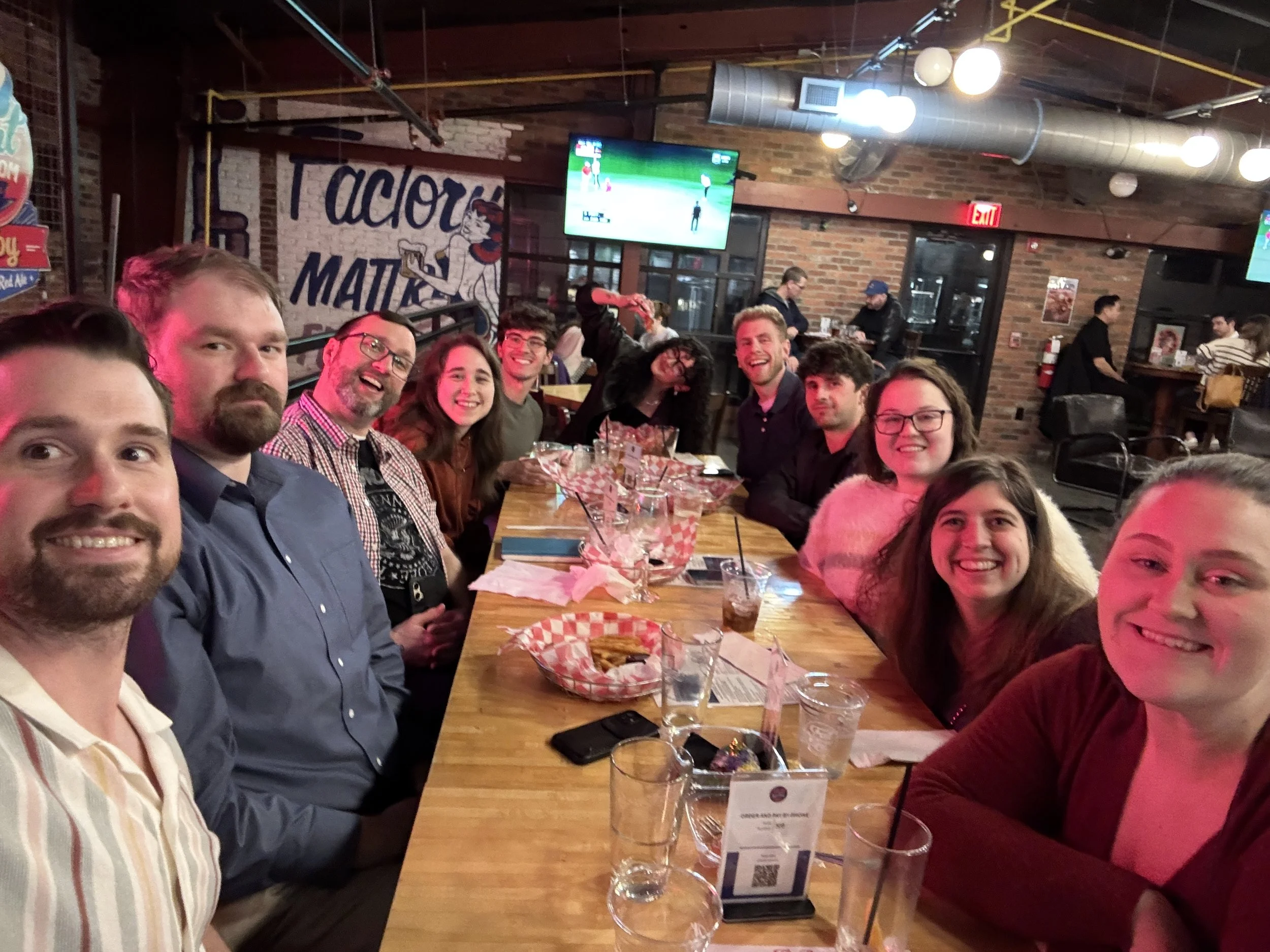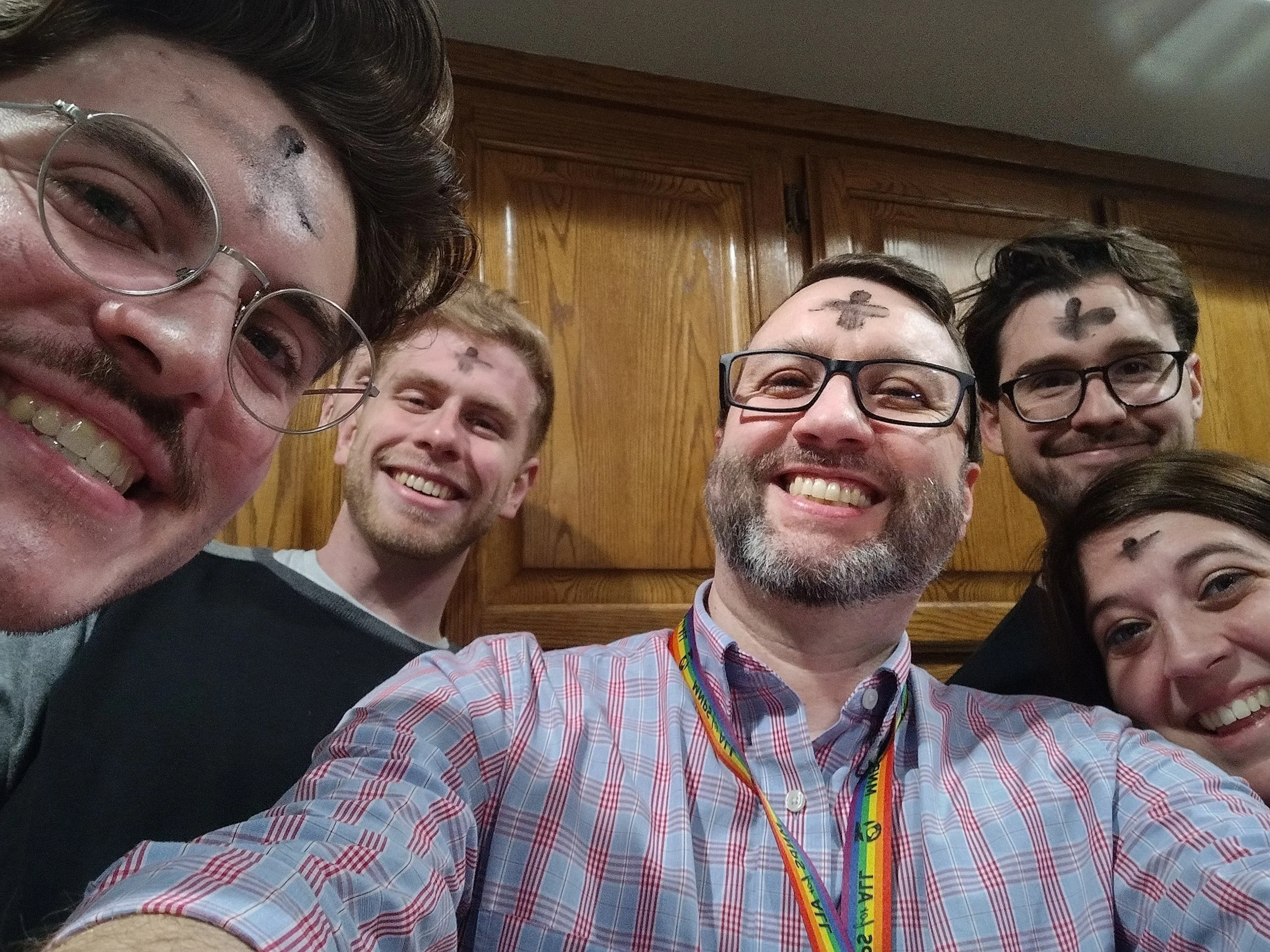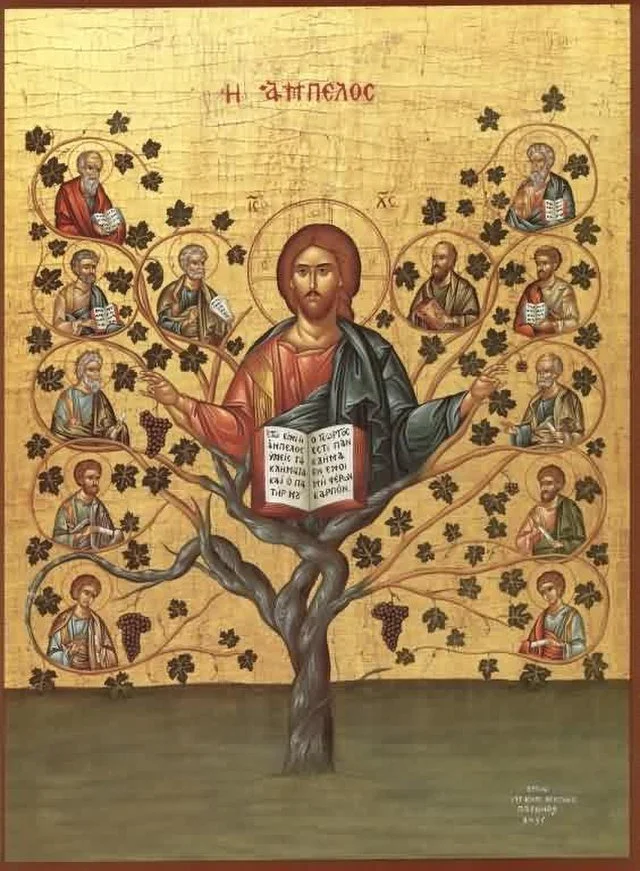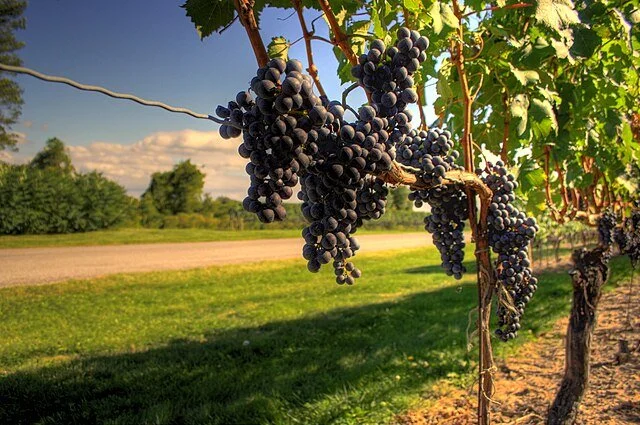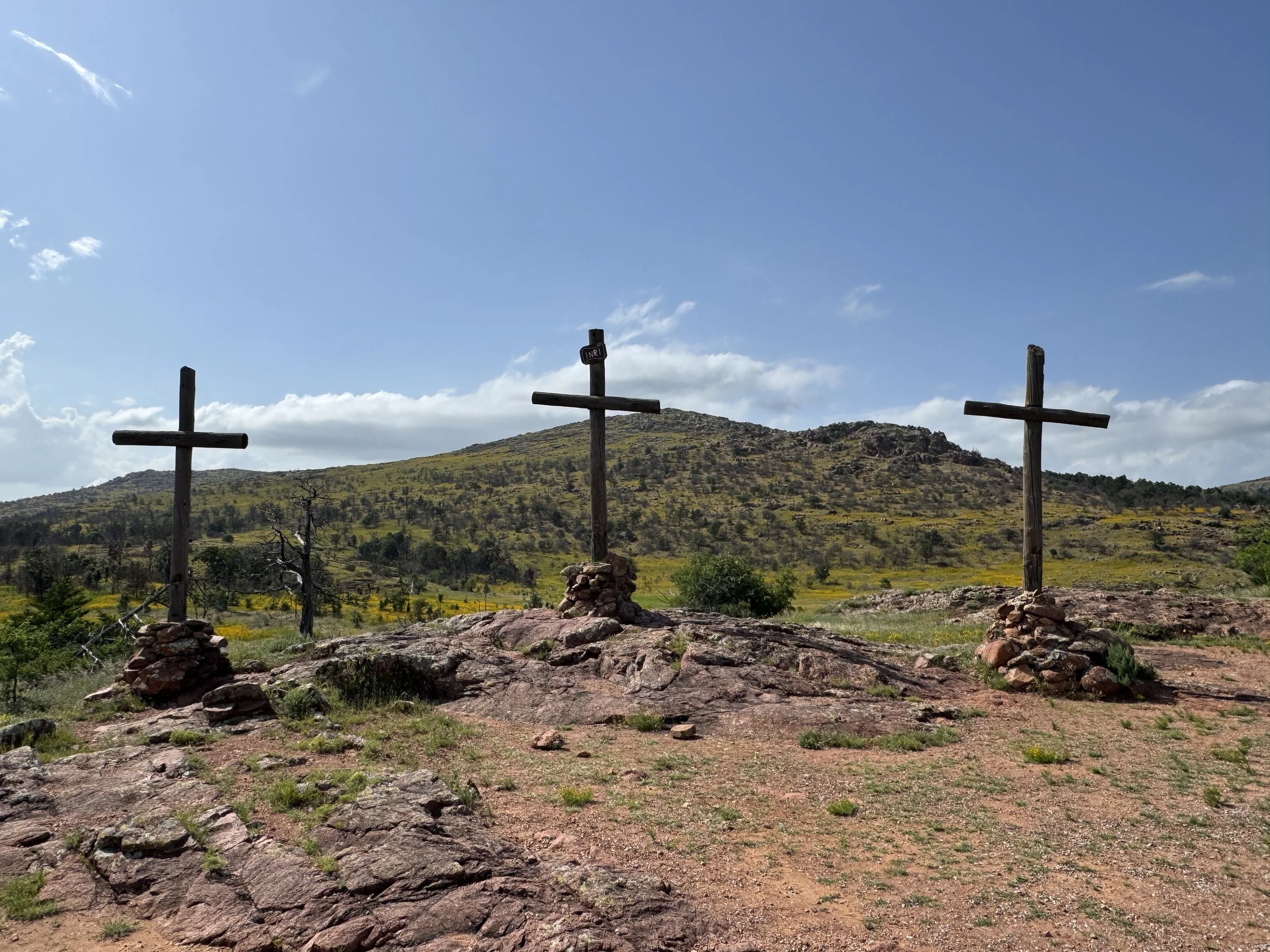
About The Way
The Way exists to be an ecumenical, egalitarian, and authentic expression of the Kingdom of God in the 21st century.
We are a spiritual community shaped by story—your story, our story, and the sacred story unfolding in Scripture. We want to be the kind of space where the experiences of all people are honored, where questions are welcome, and where lives are transformed through deep encounters with the Spirit of God.
Through weekly rhythms of prayer, scripture, sacrament, and spiritual practice, we seek to create space for awe, honesty, and healing.
Our Rule of Faith (What We Believe)
We believe in the gospel—the good news that the Kingdom of God is at hand (Mark 1:15). This isn’t just a set of ideas to affirm, but a story to live, a path to walk, and a love that transforms.
We stand in the long stream of those who have followed Jesus throughout history. Our faith is rooted in what has been passed down to us from the earliest disciples and expressed in ancient confessions like the Apostles’ Creed and the Nicene Creed. These creeds help anchor us in the core of the Jesus story—a story bigger than any one generation, culture, or perspective.
Our beliefs are simple and centered on the essentials. We choose to focus on the heart of the gospel—the life, death, and resurrection of Jesus and the invitation to participate in the Kingdom of God here and now. We trust the Spirit to lead us, together, in the complexities and conversations that arise along the way.
What follows is our community’s own way of expressing the ancient faith in language that resonates with our time and context:
We believe in…
God the Father created all things and made every human being in the divine image. Though we have distorted that image—in ourselves and in others—God has never stopped pursuing us. Through Israel, God began the long work of restoration and reconciliation for the sake of the whole world.
God the Son, Jesus the Messiah, was born of Mary and lived a fully human life. Baptized and Spirit-filled, he announced the reign of God with compassion, healing, and justice. He called people into a new way of life, and through his death and resurrection, broke the power of sin and death, inaugurating a new creation. Jesus is alive, reigning, and still calling us to follow.
God the Spirit is the giver of life and the one who renews us from within. The Spirit inspired the prophets and scriptures, walked with Jesus through every step of his human life, and was poured out to empower us for love, justice, and transformation. Through the Spirit, we are being made whole.
The resurrection of the dead, the renewal of all things, and we live in hopeful expectation of the day when God’s healing reign is fully revealed.
Our Rule of Life (How We Seek To Live)
For the earliest disciples, following Jesus wasn’t about signing off on a list of beliefs—it was about embodying a way of life. A way marked by humility, compassion, love, and courage.
That vision didn’t fade with the first generation. In the early monastic communities, believers began crafting what they called a Rule of Life—not a list of regulations, but a framework for spiritual formation. A structure that could support their lives the way a trellis supports a vine: not to control its growth, but to help it flourish in the direction of the sun.
That’s what our Rule of Life is. Not a rigid system. Not a way to measure who’s in and who’s out. But a rhythm. A path. A shared framework that helps us grow toward God—together.
In a culture that often prioritizes belief over practice, we choose to return to the ancient wisdom that how we live matters. That the shape of our days shapes the state of our souls.
We believe that following the Way of Jesus leads to growing in the Truth of Jesus, which leads to experiencing the Life of Jesus (John 14:6; 10:10).
That movement— Way → Truth → Life—is what guides everything that follows.
Experiencing God’s Love and Life Together
We believe God’s deepest desire is to love us—and all God asks is that we receive that love honestly, just as we are. And when we do, the natural result is transformation - the sacred kind—rooted in grace, unfolding over time, and grounded in the truth of our belovedness.
Finding God in All Things
We assume God is already present and active—everywhere. In the chaos and the calm, in joy and grief, in each person we meet. Our role is to wake up to that presence and respond with love. Every person is a sacred image-bearer, and every moment can become holy.
Contemplation in Action
We value stillness, silence, and simplicity—not as a retreat from the world but as preparation to engage it with compassion and clarity. We believe spiritual formation and justice are inseparable. Reflection leads to gratitude. Gratitude leads to action. Faith, for us, looks like love that actually does something.
Thoughtfully Conservative, Openly Progressive
We live in the tension—deliberately.
Faith doesn’t mean choosing between preserving the past or embracing the future. It means holding both with open hands and a listening heart.
We are conservative in the deeply spiritual sense: we believe there are truths worth conserving, practices worth preserving, a faith worth receiving. We root ourselves in the ancient story of Jesus, the wisdom of Scripture, the beauty of the sacraments, and the creeds that have carried the Church through centuries. These are not relics—they are rivers. And we drink deeply from them.
But we are also progressive, because we believe the Spirit is not done. The gospel is not static. The Kingdom is still unfolding. Jesus promised, “There is more I want to say to you...” (John 16:12), and we believe he still has more to say—through new voices, deeper questions, fresh insights, and the lived experiences of real people in a changing world.
To be progressive, for us, is not to reject the old—but to stay awake to the new. It means practicing repentance, reimagining what’s possible, and letting go of anything that no longer leads to love, healing, or freedom. It means trusting that God's truth doesn't fear our questions—and neither do we.
We honor the wisdom of those who came before us.
We stay open to the movement of the Spirit now.
We hold tradition with reverence, and transformation with joy.
We are not trying to win arguments—we’re trying to be faithful.
We are not setting up walls—we’re setting an open table.
And we trust that what’s worth keeping will hold.
And what needs to change, the Spirit will gently (or not so gently) invite us to release.
This is the tension.
This is the rhythm.
This is The Way.
